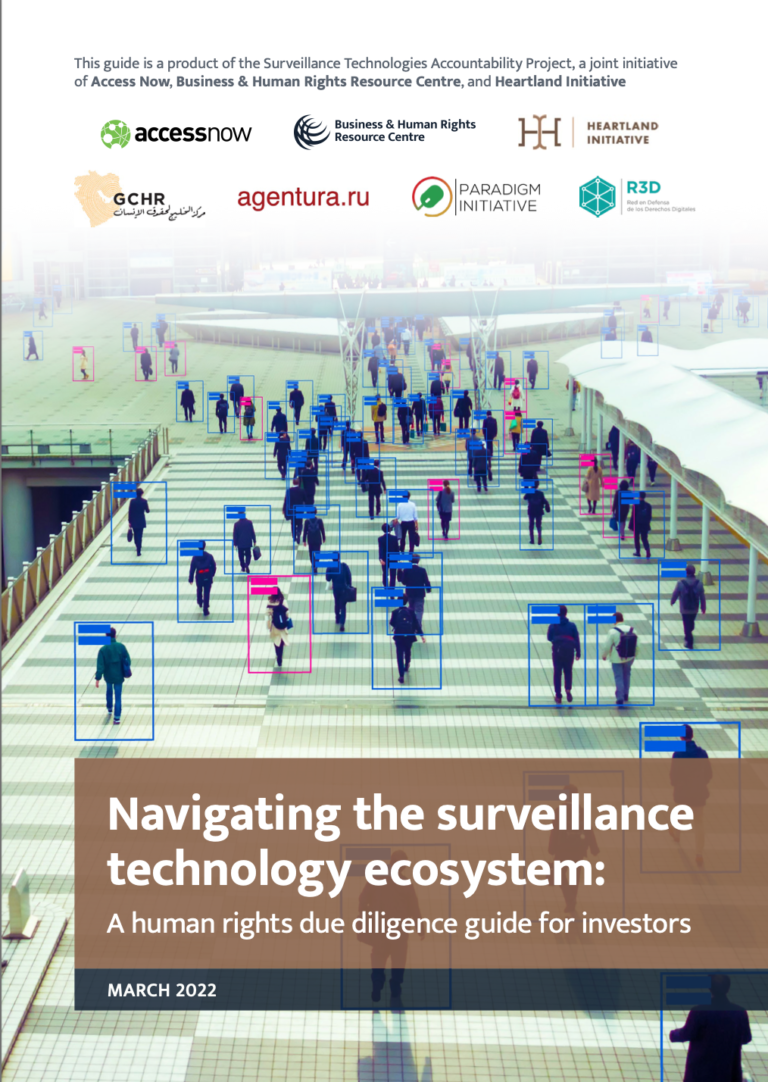As the information and communication technology (ICT) industry rapidly expands, it has the power to support democratic, accountable institutions and the exercise of civic freedoms or perpetuate violations of individual and collective rights. As described by the UN Human Rights Council’s 2020 report, new technologies can enable individuals in exercising their rights and in recent years have been used to organize social movements, document abuses, and ensure access to education during the COVID-19 pandemic. However, as UN representatives,1 digital rights organizations, and state governments attest, certain new technologies – particularly those with surveillance capabilities – are being used to violate an array of human rights.
Navigating the surveillance technology ecosystem: A human rights due diligence guide for investors (the Guide) focuses specifically on the surveillance technologies industry because it represents the most intrusive and pervasive means for systemic invasion of privacy, leads to direct violence against individuals, and perpetuates discrimination against marginalized communities. The purpose of the Guide is to assist investors in conducting human rights due diligence (HRDD)2 of cyber-security and surveillance technology companies in order to protect their investments, fulfill their responsibilities under the UN Guiding Principles on Business and Human Rights (UNGPs), and ensure emerging technologies are used to support human rights and democratic freedoms around the world.

